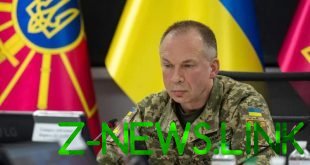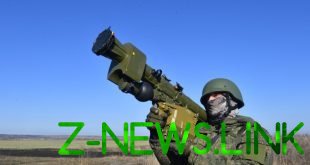
icon bookmark-bicon bookmarkicon cameraicon checkicon chevron downicon chevron lefticon chevron righticon chevron upicon closeicon v-compressicon downloadicon editicon v-expandicon fbicon fileicon filtericon flag ruicon full chevron downicon full chevron lefticon full chevron righticon full chevron upicon gpicon insicon mailicon moveicon-musicicon mutedicon nomutedicon okicon v-pauseicon v-playicon searchicon shareicon sign inicon sign upicon stepbackicon stepforicon swipe downicon tagicon tagsicon tgicon trashicon twicon vkicon yticon wticon fm
- العربية
- ESP
- РУС
- DE
- FR
- RS
Where to watch Schedule RT News App Question more live
Nagorno-Karabakh conflict: What is Russia’s position? 20 Sep, 2023 10:05 HomeRussia & FSU Nagorno-Karabakh conflict: What is Russia’s position? Moscow has facilitated a ceasefire, one day after hostilities flared up in the disputed region Violence has erupted again in the disputed region of Nagorno-Karabakh, marking the latest flare-up in decades-long tensions between Caucasus rivals Armenia and Azerbaijan. Nagorno-Karabakh is a self-proclaimed entity that was carved out of Azerbaijani territory in the dying days of the Soviet Union. As a traditional Armenian ally, Russia served as a key player in resolving previous escalations, including two full-scale wars in Nagorno-Karabakh. However, the current Armenian government under Prime Minister Nikol Pashinyan has repeatedly accused Moscow of betraying Yerevan’s interests – claims that Russia has rejected. Announcing a truce one day after the latest escalation, the authorities in Nagorno-Karabakh credited Russian peacekeepers for facilitating the agreement. On Tuesday, the Azerbaijani Defense Ministry announced “counter-terrorism measures of a local nature” in Nagorno-Karabakh. It accused Armenia of deploying military assets inside its territory and of launching sabotage operations against Azerbaijani troops. Yerevan denied the allegations and accused Baku of conducting the “ethnic cleansing” of Armenians in Nagorno-Karabakh. It urged intervention from the UN Security Council and the US, among others. The Russian Defense Ministry, which has a peacekeeping mission in Nagorno-Karabakh, confirmed multiple ceasefire violations by the Azerbaijani side, starting on Tuesday. Russian troops began evacuating civilians from the conflict zone. As of Wednesday morning, they had rescued over 2,000 people, including 1,049 children, the Defense Ministry reported. Russian military officials urged “all sides of the conflict to immediately cease fire and take measures to deescalate the situation and renew talks.” The Foreign Ministry in Moscow called for a return to the trilateral agreements that Armenia, Azerbaijan, and Russia signed following the 2020 war in Nagorno-Karabakh. The 44-day hostilities three years ago concluded with Azerbaijan seizing control over large territories it had previously lost. Peacekeepers were deployed to monitor the Moscow-mediated truce. The Russian Foreign Ministry has asserted that the situation in Nagorno-Karabakh was dramatically affected by Armenia’s apparent acknowledgement that the region is part of Azerbaijan. It cited two occasions during the past two years when Yerevan did so formally, both times during EU-mediated negotiations. This shift has affected the status of Russian peacekeepers, Moscow said. The first instance came in 2022 in a joint statement issued after talks in Prague, which said that Armenia and Azerbaijan “mutually recognized the territorial integrity and sovereignty of each other.” The second occasion came in May of this year, when Pashinyan stated that Azerbaijan’s total territory was 86,600 sq km – a figure that includes Nagorno-Karabakh. Armenia has never officially recognized Nagorno-Karabakh’s independence, even though its ties with the region have been profound for decades. Treating the territory, which Armenians call Artsakh, as part of Armenia itself is a cornerstone of the country’s politics. Pashinyan reaffirmed that stance in an interview with Politico last week as tensions with Azerbaijan escalated. He claimed that his hand had been forced last year because Russia would not intervene on Armenia’s behalf during border clashes with Azerbaijan. Russian President Vladimir Putin said last week that his Azerbaijani counterpart, Ilham Aliyev, had told him that since Armenia did not dispute the status Nagorno-Karabakh, any relevant issues should be settled without Yerevan. “What could we say to that? There’s nothing to be said if Armenia itself recognized Karabakh as part of Azerbaijan,” Putin explained. Speaking on Wednesday, the Russian president’s press secretary, Dmitry Peskov, rejected claims from Armenia that peacekeepers were failing in their duties. He added that by Yerevan’s own standards, Baku was acting inside its sovereign territory. Pashinyan came to power in Armenia in 2018 following a wave of street protests. The US and its allies have long been courting his government, nudging it to part ways with Russia and align itself with the West. Nancy Pelosi, then-US House Speaker, visited Yerevan in the wake of the 2022 border crisis to express Washington’s support for “Armenian democracy.” She claimed that Armenians “were disappointed they got fact-finders and not protection” from Moscow, and suggested that Washington could have done a better job. Meanwhile, the EU has moved into the region with a monitoring mission of its own – a step that Moscow perceives as a geopolitical ploy that could “damage the core interests of Armenians and Azerbaijanis.” Armenia hosted US troops for a joint drill in the weeks before the current escalation. Earlier this month, Pashinyan’s wife, Anna Hakobyan, traveled to Kiev to deliver aid and was pictured shaking hands with Ukrainian President Vladimir Zelensky. © 2023, paradox. All rights reserved.Escalation
Russian reaction
Change of status quo
Western courting





